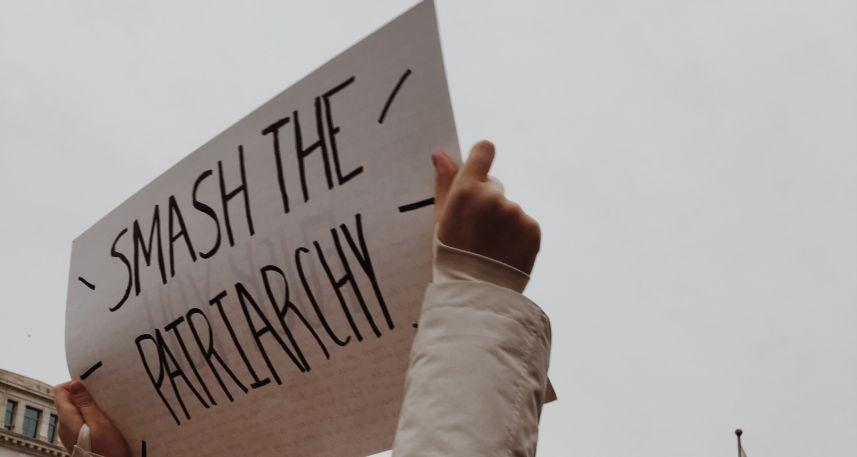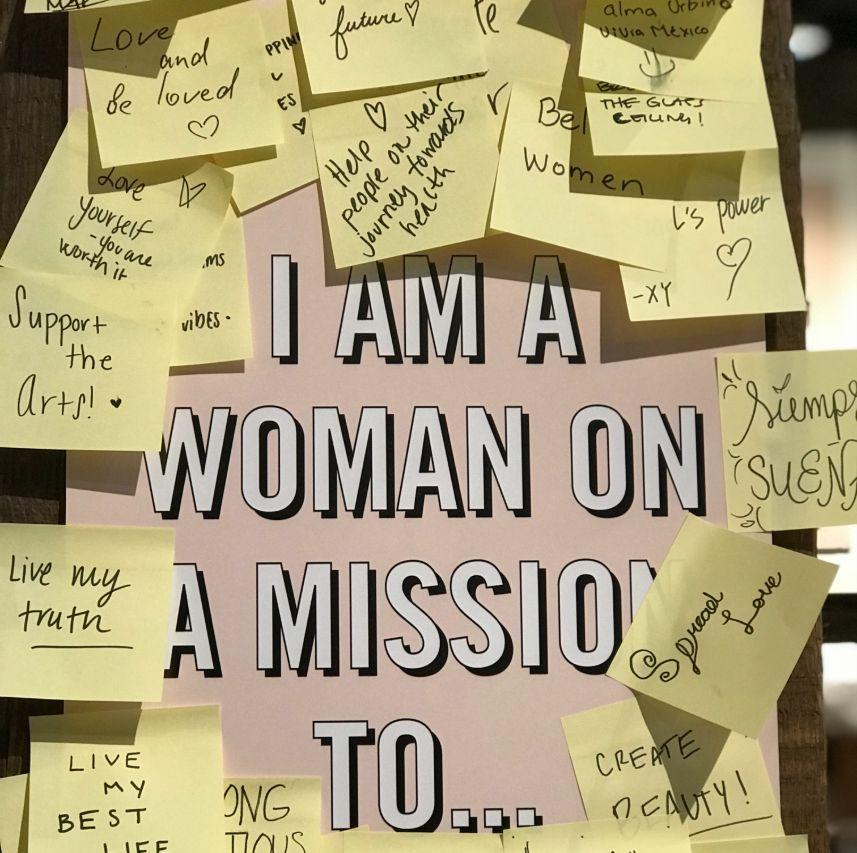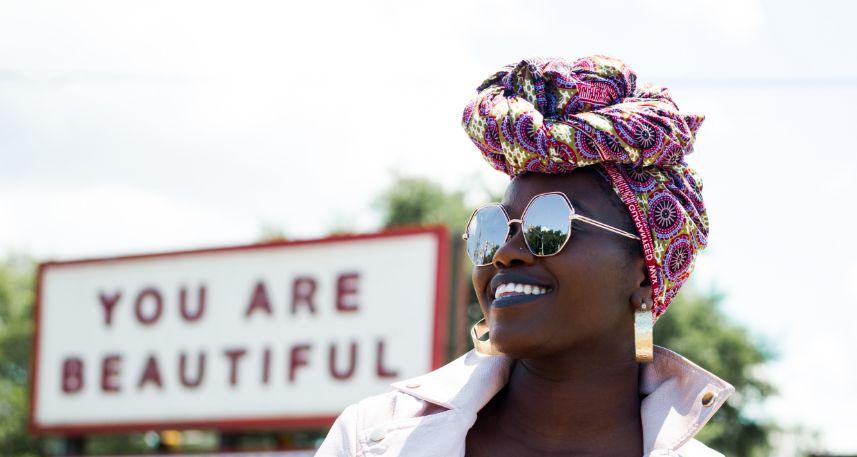Feminism: The True Meaning and Relevance of Feminism

Feminism is more than an ideology or a political and social event. Feminism is the culture of gender equality and the overall recognition of the female gender in respect to legal, political and social rights. The feminist view is a redefined perspective that advocates women’s right to their bodies in abortion and reproduction. Freedom of women from domestic violence, rape and other forms of sexual harassment etc.
Feminism is defined by Wikipedia as a range of social movements, political movements, and ideologies that share a common goal: to define, establish, and achieve the political, economic, personal, and social equality of the sexes.
Over the years, some people have seen feminists as being too forward or too violent in their pursuit of equality between the sexes. A whole lot of men and even some women are against feminism because they view feminists as man haters. This is a terrible misconception encouraged by a few extremists here and there who take feminism a bit too far.
Like Chimamanda Ngozi Adichie would say “we should all be feminists”. Feminism does hit fought for the woman alone. Inasmuch as it focuses on women, it advocates for gender equality that also takes the stress off the backs of men who must have been tired of shouldering all the responsibilities anyway. Feminism hates when a woman is relegated to the background in matters of importance like politics and the running of the society.
A feminist woman believes that her identity is important and should be preserved. She fights for the right to pursue her dreams and get to any height she wants to get to. A feminist believes in the power of her mind and her voice and aims to use that power to correct societal ills created by cultural misconceptions and tip the scales of power in a male dominated society.
Feminist movements have brought about much needed change in societal view of women. Women now have the right to vote, access to education, the right to initiate divorce and reproduction rights.
The feminist movement began in Europe and North America. Most of the feminists of that time were middle class white women.
The Four Waves of Feminism
 Image source: Unsplash
Image source: Unsplash
First Wave
In the 19th and early 20th century, the suffrage movements began. They opposed the sales of women as chattel and the ownership of women by their husbands and advocated for equal contract and property rights for women. This wave of activism ended when in 1919 the 19th Amendment to the United States Constitution granted women the right to vote in all states of the United Kingdom and the United States.
They fought against the notion of “feminine ideal” which saw women as belonging inside a predetermined space and role. The feminine Ideal saw women as homemakers who were “proper” enough to leave the politics and career sphere for the men. Around this time, women began to volunteer for various duties that supported the state, much like the army. Large numbers of women entered the job market and worked skilled and unskilled jobs.
Second Wave
Second wave feminism focused more on personal rights than political rights. It considered sexism as contributing to the sexist structures of political power. It debated on cultural inequalities and gender norms. It aimed to purge women and the entire world of the belief that being a man was the ideal.
It also spoke against the societal view that women were only useful and good for childbearing and home making. It was also during this wave that the term “women’s liberation “ was first used.
Women’s liberation as a phrase described feminist aspirations of gender freedom and equality. Women writers in their books addressed sexual and political inequalities.
Third Wave
Third wave feminists believe that women are people and are not any more or less special than the men folk. Third wave feminism advocates sexual freedom for the woman and the ability of a woman to stand alone as an individual without using a man as a crutch or even a wheelchair.
Third wave feminism is girl power, the belief that a woman can do and be anything in her live life, social life and her career. It attempts to break down those limitations that have been built around women by societal conventions. Post feminism strives to deal with discrimination, oppression, stereotyping, objectification and patriarchy.
Fourth Wave
Fourth wave feminists focus on women’s sexual rights to have multiple partners if they so please and to find maximum pleasure through masturbation and sexual experience. They consider the third wave feminist ideals to be ‘antisexual’ and focuses on eradicating sexual inequality manifested in workplace discrimination, sexual abuse and body-shaming.
It supports plus-size fashion support; support of transgender rights; male feminism and sex work acceptance. It aims to debunk feminine stereotypes that promote the idea that women are weak, inferior and not sexually active.
Feminist Movements
There have been many feminist movements over the years subtly divided by their different ideologies and the diverse things they fight for.
Radical Feminism
 Image source: Unsplash
Image source: Unsplash
Radical feminist advocate for the destruction of the patriarchy and the construction of a new society free from male dictatorship and women’s oppression. They believe that the male hierarchy of power in politics and the economy is that cause of the inequality. They believe that the differences between men and women are not biological but created by society and that women’s attributes are undervalued.
A branch of Radical Feminism which is ‘Seperatist’ feminism, does not support heterosexual relationships. They separate themselves from privileges gotten from men, and from male controlled institutions and relationships. They do not embrace the contribution of men in the feminist movement.
Liberal Feminism
Liberal feminists focus on showing the world that women are actually equipped to assert their ability to achieve equality as a result of their performance in the political and legal spheres. It fights against domestic and sexual abuse, abortion and reproductive rights, and advocates good education, voting and career opportunities for women.
Black Feminism
It is true that feminism began with white middle class women advocating for the rights of women in the country. Black feminists agree that racial discrimination and class oppression are inexorably linked with women’s oppression.
Some black feminists, Alice Walker and others, were proponents of the womanist theory which embraced the everyday life of the black woman and spike against oppression of black and coloured women. This can be seen as more and more black women are taking over the business sector.
Post Colonial and Third World Feminist
These feminists belong to third world countries and recognize that the feminine ideals are inherently white instead of global. They see their theories as ignoring the experiences of the woman in the third world countries.
Libertarian
This theory holds that women have the same rights and freedom as men because they own themselves.
Eco-feminism
The proponents of this theory link feminism with the environment, they believe that women are dominated the same way is the environment is dominated. Men own land and create a patriarchal system where men oppress women and destroy the natural environment. Eco-feminists argue that because men are in position of power they exploit women for their own profits and benefits.
Women are seen as passive and helpless by the exploiting and dominating men. They urge women to create a healthy environment as a way of fighting social and ecological injustices. They argue that women and nature are connected and have a shared history of oppression. This connection is said to have sprung from women’s daily interaction with the environment.
The Effect of Feminism
 Image source: Unsplash
Image source: Unsplash
Feminism has affected the way women behave and also the way they think of themselves. Feminism has empowered women and has caused women to stop thinking of themselves as less than men in any way. Below are a few areas of society and culture that feminism has altered.
Relationships and Marriages
Feminists argue that a woman has the right to marry when she wants and also the right to end that marriage when she sees fit. It speaks against women acting as ‘child-rearers’ and homemakers in the home. Women’s entry in the workplace has affected the unequal division of household labor and parenting.
They argue that it is unfair for women to do most of the housework when they also contribute to the financial welfare of the family and work outside the home. They also argue that the financial contribution of men in the family should not affect their contribution in the household. And personally, I agree with them.
Religion
Feminism in religion argues against male domination of the pulpit and the entire religious view of the woman as the temptress, as second place or as one who is not holy enough to be in the clergy.
Christian feminists argue that God does not discriminate on basis of sex. They believe that women should contribute as much as men to Christianity. They also believe that women should be ordained and that men should not dominate women in Christian marriages. They also speak against the “Christian” belief that women are inferior and morally deficient.
Islamic Feminists argues that there should be equality among Muslim men and women. They advocate gender equality and women’s religious and social rights in both social, political and personal contexts. It questions the patriarchal interpretation of the Quran and Sharia Laws. Sense or nonsense?
Civil Rights
Due to feminists campaign, women have gained the rights to vote and be voted for and the rights to take on jobs like men and get equal pay. They have also gained the right to wear more practical clothes, to choose when to and when not to wear a hijab, to pray in places previously only accessible to men and to own property. Women have also gained the right to have and take care of children without a male head, reproductive rights to contraceptives and abortion. Legal rights and rights to pursue higher education.
Men’s View on Feminism
Although most men do not support the feminist movement because of its radical ideas and its aim to uproot the patriarchal society, some men identify as feminists. For a man to be a feminist he must believe in the equality of the genders and strive to prevent domestic violence and other violence against women when he can,
Men who support feminism without identifying as feminists are called pro-feminists. These men try to educate men on domestic violence and sexual assault while standing up for male gender equality.
What Feminism Means Today?
It is alright to say that women’s desire to attain equality with men have cooled somewhat now that they have a right to vote, right to work outside the home and to some extent reproductive rights. Yet, feminism remains relevant. In developed countries like the UK and the USA, feminism is a household topic that is no longer cause for alarm. Besides, traditional gender roles are facing rebuke from bi-gender and non binary people.
In the undeveloped world however, feminism is still regarded as a somewhat taboo topic, and a lot of women do not want to be identified as feminists because of the misconception that feminists are angry sex starved women who want to wrest power they cannot handle from that hands of the men folk.
 Image source: Unsplash.com
Image source: Unsplash.com
Young women are sometimes advised to not be like the “feminists” who are probably lacking male attention and will either not be able to get a husband or sustain a marriage. In African societies where patriarchy is deep rooted, these kinds of opinions are popularly known and shared among men and women alike.
Women are seen as less than their male counterparts, intellectually, emotionally and physically. They are also seen as unable to make good and logical decisions for themselves and are advised to rely on their male relatives or partners for advice and leadership. In families, males are taught that they are special while females are trained to serve their brothers and taught that a woman is supposed to “submit” to their husbands when the time comes to marry.
As the African/Nigerian society is predominantly religious, Christian and Muslim women are told that they are a man’s “missing rib” and because of that they are an essential component and created for a man’s amusement. Women admonished to be silent and told that a virtuous woman I seen and not heard. These beliefs have caused women to be excluded from the pulpit and holding religious positions.
In relationships men are accorded privileges such that a man can cheat in and it is excused or considered normal while if a woman cheats it is considered taboo.
Even in politics, there are covert restrictions on how far a woman can go in politics. It is the African belief that a woman is not responsible unless she has a husband to “lead” her and “advice” her. Therefore women who aspire to occupy positions of power must gain the people’s support by seemingly being “under” a man.
It is a popular belief that no matter how well educated a young woman is, all her learning is useless when she gets married and her husband tells her to become a stay at home mom and a housewife. Divorce is also taboo in the African society where a divorced woman is seen as sexually immoral and of questionable character.
With all these misconceptions clouding the minds of men and women alike in our present day society and in a country like Nigeria where women still do not have reproductive rights and cannot decide when and how to start building a family we ask ourselves questions: what is the fate of the African/Nigerian woman, what is the fate of the African/Nigerian feminist?
In conclusion, I must assert that feminism is a noble movement that should have the support of men and women all over the world. Discrimination on basis of gender is barbaric and uncivilized and should be totally eradicated. I believe that feminism starts from the mind and that its ideologies should be taught in schools to our little ones so they learn at that young age to treat everyone equally and with respect regardless of sex.
All women and men considered equal, gender equality, freedom to be and to pursue whatever career they want to, these are the aspirations of feminists and they are worthy of support.
Disclaimer: All views expressed in this article are personal and do not reflect the opinions of all feminists or women.
She's a beauty and an exquisite lady who enjoys the high life in writing and poetry. Her writing style and prowess is innovative and focuses on the feminine perspective, bringing nothing but wholesome gratification to the African, Afrocentric and Afro-American women at large

